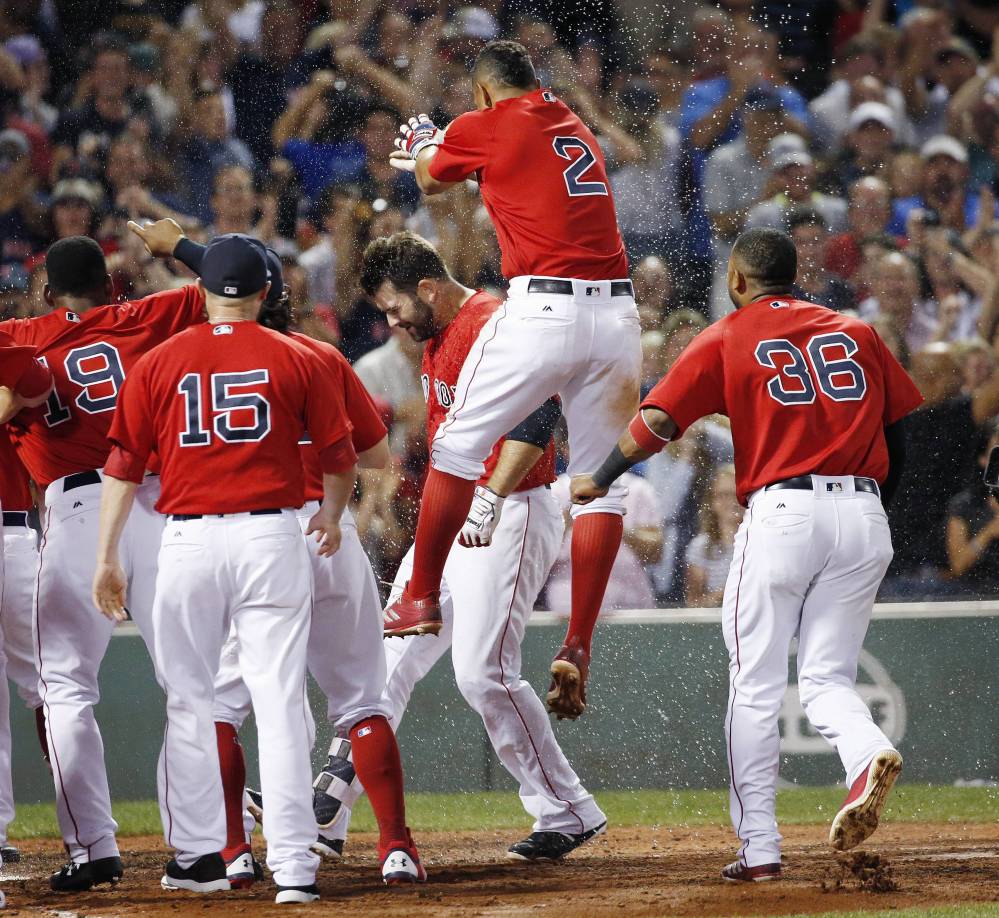There’s an word that’s overused in a sports context, especially around these parts.
Likable. Let’s stop using it now. What a cop-out of a word.
Likable is the word fans use to distance themselves from a struggling team. Why invest your time watching and cheering for a team if it’s not “likable?” If the team isn’t likable, you can tell yourself you don’t care. Likable is an eraser.
For a good portion of July, the Boston Red Sox were deemed unlikable by a lot of fans. The team was treading water. A minor feud between overpaid pitcher David Price and broadcaster Dennis Eckersly became the story of the century and the lightning rod for what’s likable.
A year and a half into his time in Boston, it’s apparent Price is severely allergic to criticism. One can imagine Price developing hives after reading a mean tweet. There’s no doubt he needs a thicker skin and a better social media filter. That, combined with his grotesquely large paycheck, has dropped Price into the unlikable zone. On the disabled list now with elbow soreness, Price may never be able to justify his contract to Red Sox fans. He is paid an obscene amount of money to help the team get to October baseball, which he did last season, and to win games in October, which he did not. Price’s inability to ignore criticism would be forgiven by fans if he won a postseason game or two. That would be likable.
You know what’s likable? A cushion for the division lead and a modest win streak. If you tuned into sports talk radio at any time over the last few days, you may have heard different fans essentially say same thing: “I didn’t like this team, now they’ve won a few games in a row, and I like them again.” A Red Sox team that had dropped into second place behind the New York Yankees shortly after the all-star break is unlikable. The same team gets hot, retakes first place, and puts a little highway between itself and the rest of the division. Boom, likable.
Walkoff wins are likable. Game-winning home runs by Mitch Moreland and Christian Vazquez are likable. If the Red Sox go on another skid, lose seven of 10 games or blow a late lead or two, you’ll hear it again. “I told you this team isn’t likable.”
This is not saying refrain from booing a poor performance. An error, bad at bat or simple lack of effort deserves a good jeer. Just don’t hide your frustration under the unlikeable banner to camouflage it. If you’re genuinely indifferent, that’s OK. Own it.
The 2011 Red Sox are the team that defines unlikable. All it took was one lousy month, a bucket of chicken, and a few cold beers. On August 31, 2011, the Red Sox were 83-52, and a game and a half up on the Yankees for first place in the American League East. Very likable.
A month later, the Red Sox were 90-72, and we saw their playoff hopes vanish in real time on the final night of the regular season. The Sox lost in walkoff fashion to the Baltimore Orioles. Moments later, the Tampa Bay Rays beat the Yankees. Abrupt, jarring, and so, so unlikable. A joyful summer changed with the seasons. Unlikable became the way to say disappointed in performance.
The New England Patriots are well into training camp now, and it’s a stone cold mortal lock that head coach Bill Belichick does not care one bit whether or not you find him likable. And neither do you, because all he does season after season is win. You may even find his curmudgeonly tendencies endearing. In an NFL run by people obsessed with cultivating an image, Belichick’s refusal to play along is refreshing. Winning is likable.
Judge your favorite teams on how hard they play. If it loses, call it what it is, frustrating. The only thing truly unlikable in sports is a lack of effort, and thankfully, that is rare.
It’s obvious losing is unlikable, but don’t use that to hide you care about a team’s fortunes. That’s disingenuous, and that’s…
Well, you know.
Travis Lazarczyk — 861-9242
Twitter: @TLazarczykMTM
Copy the Story LinkSend questions/comments to the editors.



Success. Please wait for the page to reload. If the page does not reload within 5 seconds, please refresh the page.
Enter your email and password to access comments.
Hi, to comment on stories you must . This profile is in addition to your subscription and website login.
Already have a commenting profile? .
Invalid username/password.
Please check your email to confirm and complete your registration.
Only subscribers are eligible to post comments. Please subscribe or login first for digital access. Here’s why.
Use the form below to reset your password. When you've submitted your account email, we will send an email with a reset code.